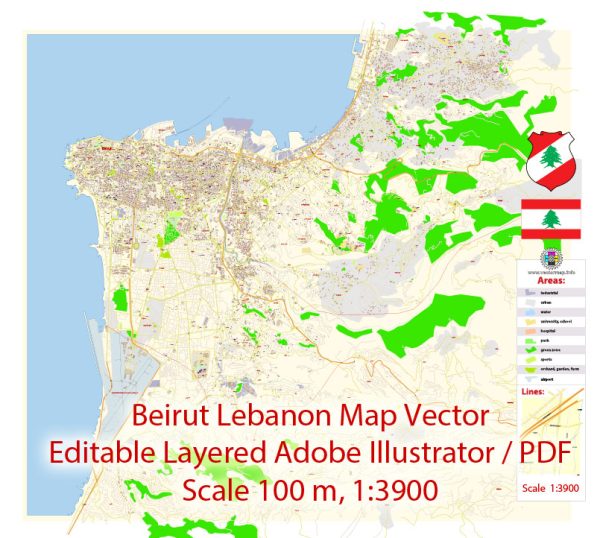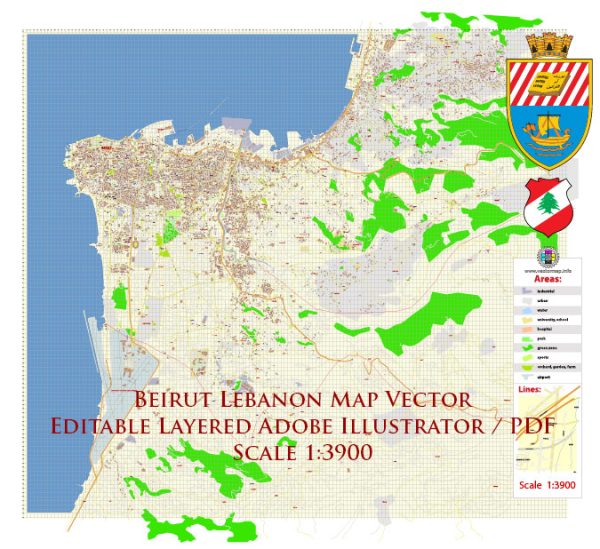Beirut, the capital and largest city of Lebanon, has a rich and complex history that spans thousands of years. Its history is marked by various civilizations, conquests, and cultural influences. Here is an overview of the history and description of Beirut, Lebanon:
Ancient Beirut:
- The history of Beirut dates back to at least 3000 BC, with evidence of human habitation in the area during the Bronze Age.
- In antiquity, Beirut was known as Berytus, and it was a thriving Phoenician port city. The Phoenicians were famous for their seafaring and trading activities.
- Berytus became a Roman colony in 15 BC and played a significant role as a center of learning, with a famous Roman law school. It was also known for its production of parchment, which contributed to the development of codices and books.
- The city was later part of the Byzantine Empire and then the Eastern Roman Empire (Byzantium) until it was conquered by the Arab Muslims in the 7th century.
Medieval and Ottoman Period:
- Beirut went through various periods of rule, including Crusader control during the Middle Ages and later incorporation into the Ottoman Empire in the 16th century.
- Under Ottoman rule, the city continued to be a commercial and trade center.
French Mandate and Independence:
- After World War I, Beirut came under French mandate, and Lebanon, of which Beirut was a part, gained independence in 1943.
- Beirut continued to grow as the capital and economic center of Lebanon.
Civil War and Reconstruction:
- The city faced significant challenges during the Lebanese Civil War (1975-1990). Beirut was divided into various sectors controlled by different militias, and it experienced widespread destruction.
- Following the civil war, a period of reconstruction began, with many parts of the city being rebuilt and revitalized.
Modern Beirut:
- Today, Beirut is a vibrant and diverse city, known for its cultural richness, historical sites, and a bustling nightlife.
- It is a major hub for finance, trade, and commerce in the region and plays a significant role in the global economy.
- Beirut is famous for its eclectic mix of architecture, ranging from ancient ruins to modern skyscrapers.
- The city is home to a diverse population and a mix of cultures, making it a melting pot of traditions and lifestyles.
- Beirut has faced challenges in recent years, including political instability and economic difficulties. It has also been impacted by regional conflicts, including the Syrian Civil War.
In summary, Beirut, Lebanon, has a long and complex history that has shaped its identity as a dynamic and culturally diverse city. Despite facing challenges and periods of turmoil, it has remained a significant center for trade, education, and culture in the Middle East.



 Author: Kirill Shrayber, Ph.D. FRGS
Author: Kirill Shrayber, Ph.D. FRGS